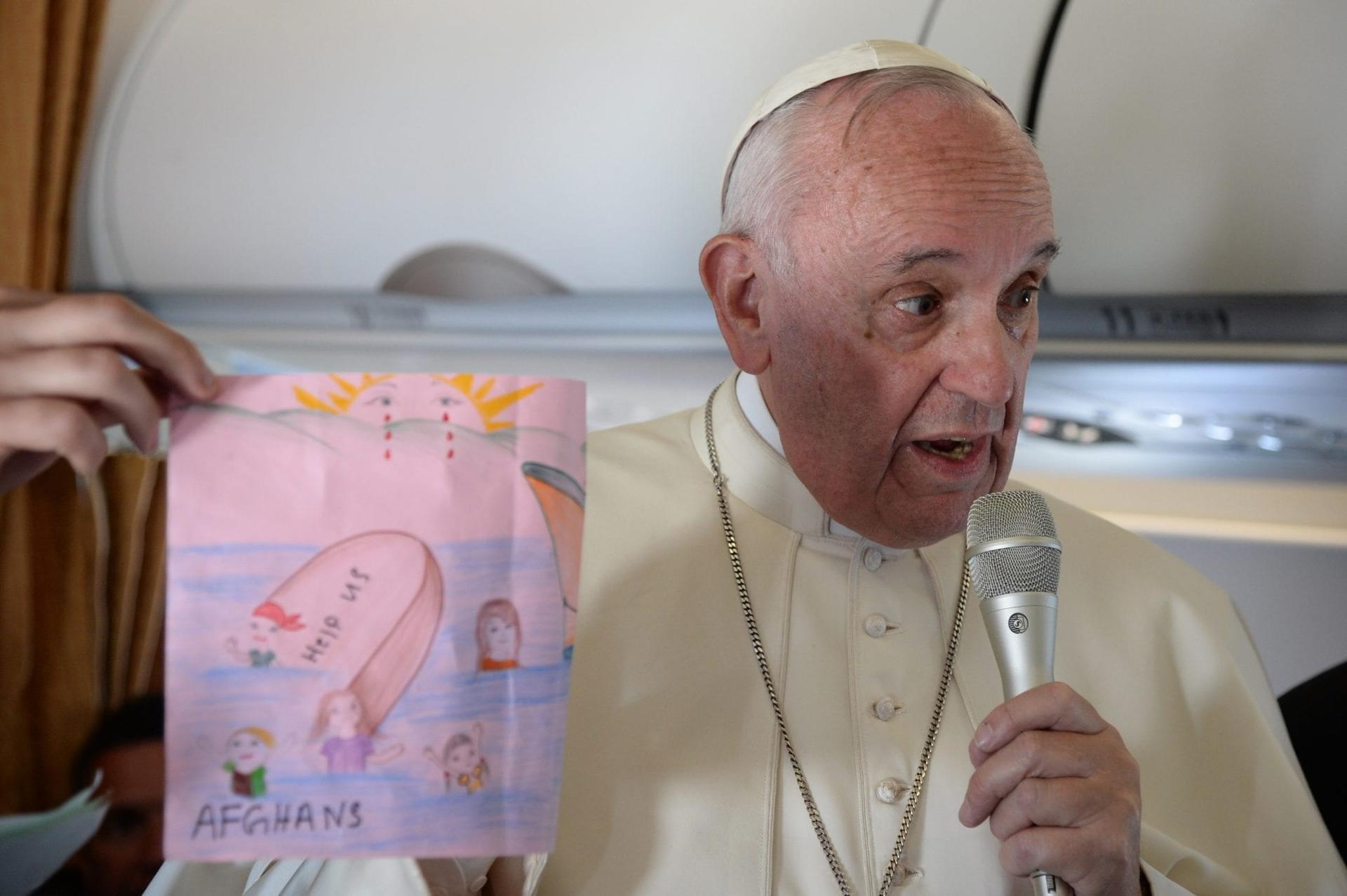ROME— In his annual message for the Vatican’s refugee day, Pope Francis focuses his attention on child migrants, saying they’re the most vulnerable group among the refugees because they are “invisible and voiceless.”
Quoting Jesus in the Gospel of Matthew — “whoever receives a child in my name receives me” — the pope notes how Jesus goes on to warn those who cause a child to sin: “It is better for him to have a great millstone fastened round his neck and be drowned in the depth of the sea.”
“How can we ignore this severe warning when we see the exploitation carried out by unscrupulous people?” Francis writes, noting how such exploitation leads children into prostitution and pornography, enslaves them as child laborers or soldiers, or involves them in organized crime.
For this reason, he says, he feels compelled to draw attention to child migrants, particularly those who travel alone, on the occasion of the Vatican-sponsored World Day of Migrants and Refugees 2017, to be observed Jan. 15.
The theme for the message is “Child Migrants, the Vulnerable and the Voiceless.”
The United Nations estimates that there are currently 65 million refugees in the world today, the highest number in history. As Francis notes, migration is also a global phenomenon affecting all continents that is becoming “a tragic situation of global proportions.”
Migration, he continues, is not only undertaken in search of dignified work, but involves men and women, the elderly and children being forced to leave their homes in the hopes of “finding safety, peace, and security.”
“Children are the first among those to pay the heavy toll of emigration,” Francis says, adding that it is almost always triggered by violence, poverty, the environment and “the negative aspects of globalization.”
“The unrestrained competition for quick and easy profit brings with it the cultivation of perverse scourges such as child trafficking, the exploitation and abuse of minors and, generally, the depriving of rights intrinsic to childhood as sanctioned by the International Convention on the Rights of the Child,” Francis says.
According to UNICEF, there are currently 150 million underage children worldwide engaged in child labor.
Among migrants, the pontiff wrote in his message, children are the most vulnerable group because they’re “invisible and voiceless.” Their situation deprives them of documentation, and having no adult accompanying them leaves them defenseless.
“In this way, migrant children easily end up at the lowest levels of human degradation, where illegality and violence destroy the future of too many innocents, while the network of child abuse is difficult to break up,” he says.
Francis calls for the world, and particularly Catholics, to address this reality by remembering that the phenomenon of migration is not unrelated to salvation history: “You shall not wrong a stranger or oppress him, for you were strangers in the land of Egypt,” he writes, quoting the Book of Exodus.
The worth of an institution, he adds, “is measured by the way it treats the life and dignity of human beings, particularly when they are vulnerable, as in the case of child migrants.”
The Church, he says, needs to work on protection, integration and long-term solutions.
Francis also acknowledges that among the factors that make migrants vulnerable to exploitation is their ignorance of the law, of the culture and frequently of the language of host countries. Hence, he says, his appeal to work with the communities that welcome them, “for the good of their children.”
Towards the end of his message, the pope calls for the international community to tackle the complex phenomenon of child migrants at its source. “Wars, human rights violations, corruption, poverty, environmental imbalance and disasters, are all causes of this problem,” he notes.
Pope Francis, the son of Italian emigrants to Argentina, has been drawing attention to the refugee crisis since the beginning of his papacy, when he opted to visit the Italian island of Lampedusa, the door for thousands of refugees arriving in Europe. Earlier this year, he made a similar trip to the Greek island of Lesbos, and he returned with several Syrian families who are currently living in Rome.














